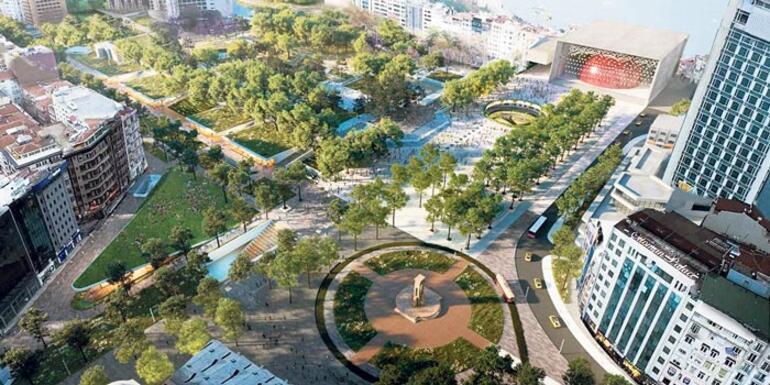
Istanbul residents will now vote online in a competition that features award-winning urban design projects to decide the fate of the important squares in the city, including the iconic Taksim Square.
The Istanbul Metropolitan Municipality organized an urban design contest for the busiest squares in the city such as Taksim, Bakırköy and Salacak, which the municipality has decided to redesign.
Some 233 projects competed in the design contest organized by the Istanbul Planning Agency, according to daily Hürriyet.
A jury, consisting of prominent figures such as Zeynep Ahunbay, İpek Akpınar Aksugür, Arman Akdoğan, Can Kubin, Arzu Nuhoğlu and Kerem Piker, as well as Manuel de Rivero and Rainer Schmidt, have determined three different urban design projects for each square.
The projects have been opened to take a public vote to determine which one of the designs should be implemented.
The residents will now choose their favorite among them by taking part in the vote online with their Turkish ID card numbers.
Decades-long debate
Taksim Square, the city’s major tourist and culture hub, has been a subject of controversy for several decades and has witnessed lengthy legal processes over the years.
In 1983, a redesign project was suggested, but the Council of State ruled that constructing new structures on it would be against the public benefit.
Various plans and designs have been developed for the square and its surroundings over the years.
In the summer of 2013, relatively small demonstrations in Istanbul’s Gezi Park grew into a nationwide wave of protests when the municipality officials attempted to cut down trees to reconstruct military barracks.
The military barracks project did not come up again, but a pedestrianization project was implemented and a new redesign project was introduced the same year.
But the Chamber of Architects and the Chamber of Urban Planners have reacted negatively to plans that aimed at beautifying the square with ponds, small groups of trees and benches.
In July 2015, the Council of State reversed the judgment, canceling various construction plans in Istanbul’s Beyoğlu district and paving the way for a number of projects, including a mosque.
The construction of a mosque in the square began in 2017.
Later, reports began to appear over the fate of the square’s Atatürk Cultural Center, which lied derelict on one of the sides of the public space after its closure for renovation in 2008.
As of this year, the construction of a mosque and a new cultural center overlooking the square continues, just like debates on how Taksim Square will be.
But there is no information yet about whether the selected design will be applied or not, and if so, then when the project will begin is still unclear.